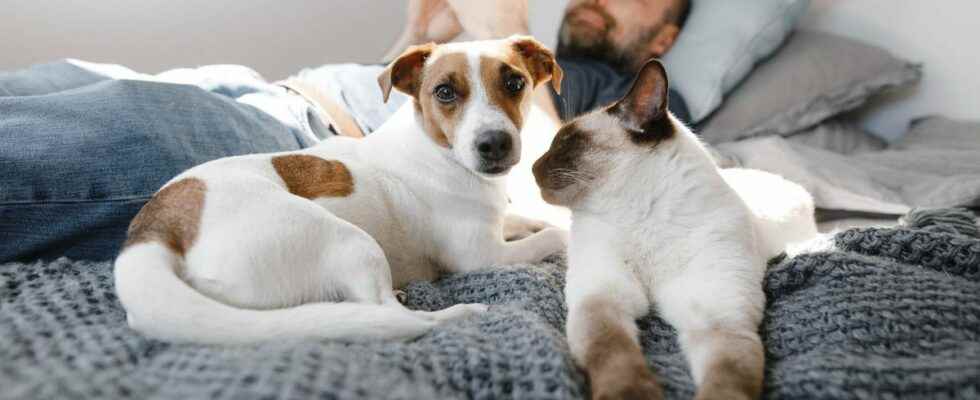Published ,
Reading 2 mins.
The National Health Security Agency has advised monkeypox patients to avoid contact with their pets as much as possible. However, not all animals seem to be receptive to the virus in the same way.
Cats, dogs, rabbits… What species of animals are capable of spreading monkeypox? For experts from the National Agency for Food, Environmental and Occupational Health and Safety (Anses), the answer is still unclear. Admittedly, the presence of the virus has already been demonstrated in different wild animal species, but little is known about the ability of domestic animals to be infected and potentially spread the virus.
Monkey pox: several species are suspected of carrying it
The ANSES experts therefore took an interest in the receptivity and sensitivity of animals to this virus. To fully understand these concepts,
- The receptivity of a virus is the ability of an animal species to harbor the virus without necessarily developing symptoms.
- The sensitivity is the capacity of the animal species to express clinical signs and/or lesions due to the virus.
Following) their analysis of the scientific literature, ANSES wants to be very cautious because “data on the susceptibility of pets to monkeypox are very limited or even absent”. Its conclusions are therefore subject to change.
In the state of knowledge, several species are nevertheless suspected of being able to transmit the disease:
- Lagomorphs, such as rabbits or haresare receptive and sensitive under experimental conditions, especially rabbits.
- Sciurids, including squirrels and prairie dogs, seem to constitute a receptive and sensitive family, possibly the most at risk of contamination by humans. However, the possession and sale of these animals is not authorized in France.
- Pet rodents, such as brown rats, mice, guinea pigs or hamstersseem not very receptive to the virus in adulthood but could be so for the youngest animals.
Data are lacking for ferrets and dogs. On the other hand, on the side of cats, a serological study exists with negative results. No case of infection in these three species has therefore been declared.
In case of infection with the monkeypox virus, several measures should be taken:
- Avoid contact with your animal as much as possible (ideally by having it looked after by another person during the isolation period);
- If this is not possible, before each contact with your animal, it is strongly recommended to wash your hands, wear gloves and a single-use surgical mask and protect skin lesions (in the absence of contraindications). medical indication);
- Do not let your animal enter the isolation room;
- Careful cleaning of the home including surfaces, bedding, clothes and dishes must be carried out at the end of isolation;
- Waste such as vesicle crusts should be kept in dedicated trash bags (away from pets and other family members);
- For small mammals (rodents, lagomorphs), it is recommended to disinfect the cage with bleach.
Pending additional data, ANSES recommends vigilance.
Symptomatic people should pay particular attention to their animals, in order to detect any early signs of the virus.
